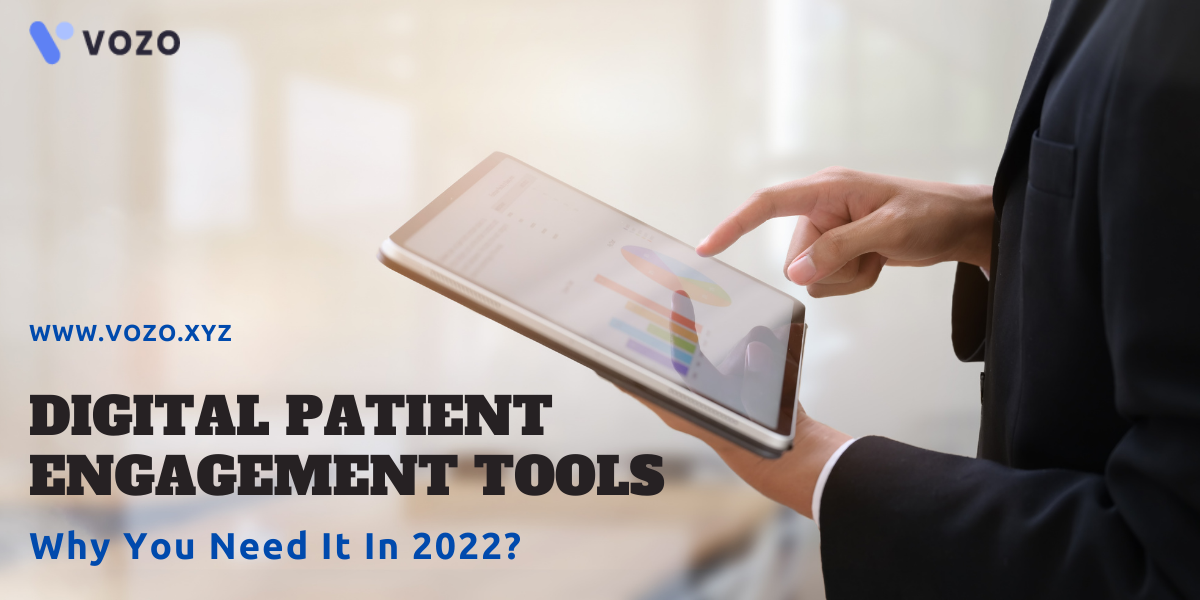Digital Patient Engagement Tools: Why You Need It In 2022?
Today the healthcare organizations are facing staff shortages that seriously affect the timely healthcare delivery to their patients. So, the pressure turned towards the staff and on the practice cash flow.
Healthcare providers need the right solutions to cut down their labor shortage issues before they impact their financial operations and patient care. Here comes the use of digital patient engagement tools. In this article, we explain to you the extraordinary benefits of patient engagement tools for your healthcare practice.
Patients show enthusiasm for digital tools
For providers, digital patient engagement tools including patient-self-scheduling capabilities for appointments, automated appointment reminders, online pre-service check-in, and post-visit payment plan options, offer a plethora of benefits such as improved collections, greater operational efficiencies, and integration with third-party software applications including electronic health records (EHR) systems.
In general, patients are eager to use digital tools in healthcare, a trend that is illustrated by their rapid adoption of telehealth during the Covid-19 pandemic. For example, an Accenture survey of nearly 1,800 people in the U.S. found that in early 2020 only 7% of people had experienced a virtual consultation with a provider; by mid-2021, that number had climbed to 32%.
Encouragement from medical providers helped fuel the shift to virtual visits and can similarly help drive increased adoption of other digital tools. For example, when asked what would make them more likely to use digital tools to manage their health, patients’ most frequently cited answer at 33% was “recommendations from my medical provider.”
Benefits Of Digital Patient Engagement Tools
Self-scheduling: By presenting patients with an option to schedule appointments that they can access at all hours of the day – as opposed to having to call during office hours – practices reduce barriers to patient access while enhancing patient satisfaction. Freed from having to answer phones to schedule all appointments, practice staff can devote greater time and energy to patient-facing activities.
Automated appointment reminders
Many providers use automated tools to send appointment reminders to patients at specified intervals before the appointment time, such as one week or one day. These tools often provide omnichannel options to cater to individual patient preferences for communicating reminders, such as text messages, emails, or phone calls. Automated appointment reminders can help practices protect revenues by providing a helpful nudge to prompt patients to show up for appointments, resulting in fewer no-shows.
The same technology built for the delivery of appointment reminders can also be used to provide driving directions, customized patient communications, and invitations to digital check-in without requiring the patient to log into an app or website.
RELATED: How To Create Effective Patient Appointment Reminders?
Pre-service check-in:
When performing digital pre-service check-in, a link is sent to a patient that enables them to enter or confirm in real-time several key pieces of information, including demographic and personal data; insurance and benefits coverage; and a cost estimate based on copay and visit type. Digital pre-service check-ins save time for both patients and providers by removing the need to fill out paper forms or confirm information with staff.
Providers can move patients through more efficiently, enabling them to boost revenues by seeing more patients in the same amount of time. Having the patient validate or update demographic information can also reduce the number of denied claims due to information errors.
RELATED: How To Develop Your Patient Retention Strategy?
Post-visit check-out:
During the post-visit check-out process, practices bill patients or provide payment plan options. Next, payments are processed upon receipt. By offering flexible payment options to patients, providers can improve collections, reduce the need for costly follow-up activity, and reduce bad debt sent to collections agencies. Third-party integration prevents double-posting of charges and improves the patient experience through better price transparency.
Final Thoughts
Unfortunately, the effects of the national labor shortage will be felt by most providers and the patients they serve into next year, and possibly beyond.
Rather than continuing to pour scarce resources into additional salaries, bonuses, benefits, and recruiting, providers should consider investing in digital patient engagement tools that enable existing staff to work more efficiently and at the highest of their abilities.
The patient portal software serves to be one of the best digital patient engagement tools for 2022. So don’t miss including it in your clinical tools list. Searching for the patient portal system? Vozo offers the best patient portal software and strives to improve your practice productivity and engage your patients by simplifying their scheduling tasks.
Schedule a free demo today!
About the author

With more than 4 years of experience in the dynamic healthcare technology landscape, Sid specializes in crafting compelling content on topics including EHR/EMR, patient portals, healthcare automation, remote patient monitoring, and health information exchange.
His expertise lies in translating cutting-edge innovations and intricate topics into engaging narratives that resonate with diverse audiences.














